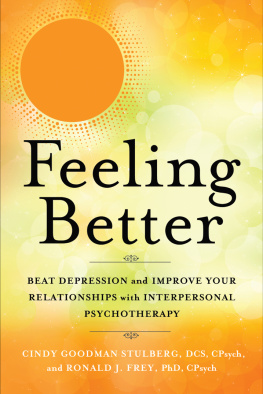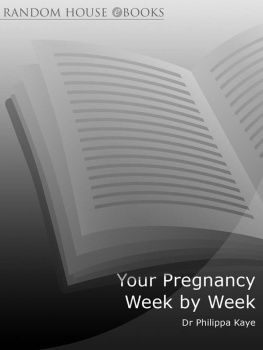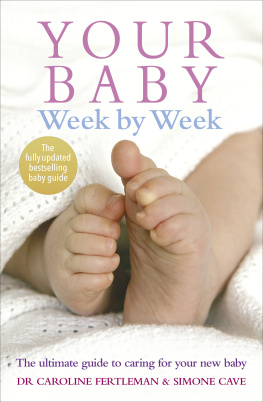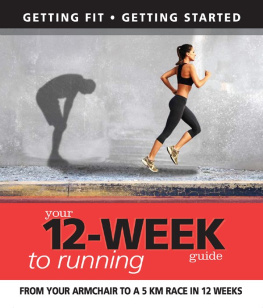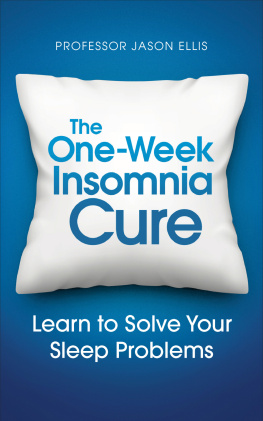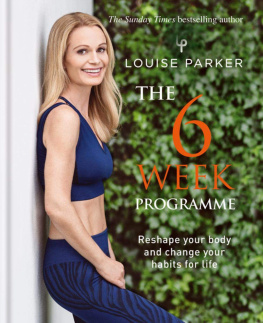Praise for Feeling Better
Building on the fundamental truth that our closest relationships are central to our happiness, Feeling Better is an indispensable guide to overcoming depression by changing ineffective patterns of relating. This accessible, evidence-based treatment program, rooted in interpersonal psychotherapy, provides highly effective tools with which to change your relationships, your mood, and your life.
Matthew McKay, PhD, coauthor of Thoughts & Feelings and Self-Esteem
Finally, a book that makes interpersonal psychotherapy (IPT) accessible to everyone. The effectiveness of IPT has been rigorously demonstrated by clinical research and should be more widely available to individuals struggling with depression and other mental health issues. It also makes sense that the quality of our relationships is central to our mental health. Feeling Better could be used for self-help or in combination with treatment by a qualified therapist. If you want to feel better, read this book!
Dr. Allan B. Steingart, founder and CEO of Psychotherapy Matters and assistant professor of psychiatry, University of Toronto
The title says it all. I love this proactive approach to mental health. I can see it giving people a sense of empowerment over their depression, which goes a long way, in my experience! Im a fan of this book because (a) it gives validating encouragement and simple, proactive steps toward positive change; and (b) its cheaper than pills.
Jessica Holmes, comedian, member of Air Farce, and author of Depression: The Comedy



| New World Library 14 Pamaron Way Novato, California 94949 |
Copyright 2018 by Cindy Goodman Stulberg and Ronald J. Frey
All rights reserved. This book may not be reproduced in whole or in part, stored in a retrieval system, or transmitted in any form or by any means electronic, mechanical, or other without written permission from the publisher, except by a reviewer, who may quote brief passages in a review.
The material in this book is intended for education. It is not meant to take the place of diagnosis and treatment by a qualified medical practitioner or therapist. No expressed or implied guarantee of the effects of the use of the recommendations can be given or liability taken. Names and identifying characteristics have been changed to protect the privacy of others.
Text design by Tona Pearce Myers
Library of Congress Cataloging-in-Publication Data
Names: Stulberg, Cindy Goodman, date, author.
Title: Feeling better : beat depression and improve your relationships with interpersonal psychotherapy / Cindy Goodman Stulberg, DCS, CPsych, and Ronald J. Frey, PhD, CPsych.
Description: Novato, California : New World Library, [2018] | Includes index.
Identifiers: LCCN 2018023097 (print) | LCCN 2018036476 (ebook) | ISBN 9781608685691 (ebook) | ISBN 9781608685684 (alk. paper) | ISBN 978160868569-1 (ebook)
Subjects: LCSH: Interpersonal psychotherapy. | Interpersonal relations. | Self-esteem.
Classification: LCC RC489.I55 (ebook) | LCC RC489.I55 S88 2018 (print) | DDC 616.89/14dc23
LC record available at https://lccn.loc.gov/2018023097
First printing, November 2018
ISBN 978-1-60868-568-4
Ebook ISBN 978-1-60868-569-1
Printed in the USA on 30% postconsumer-waste recycled paper

| New World Library is proud to be a Gold Certified Environmentally Responsible Publisher. Publisher certification awarded by Green Press Initiative. www.greenpressinitiative.org |
10 9 8 7 6 5 4 3 2 1
Contents
Cindys true confession: Im one of those people who skips introductions. Im busy. Just get me to the good stuff. This is your journey, so skip to if you like. But if youre interested in knowing more about Ron and me, the approach that we use, and the four main individuals well follow over the next twelve weeks, read on.
W e want to let you in on a secret. Your relationships hold the key to your happiness.
Yup, your relationships. Not your bank account, your job, a Caribbean vacation, having a baby, not having a baby, getting a promotion, building your dream kitchen, or losing ten pounds. Those things may give you a momentary boost. But its your relationships with your friends, family, spouse, girlfriend, boyfriend, coworkers, and neighbors even your hairdresser that will determine whether youre happy for the long term.
The flip side is also true. Your relationships hold the key to your unhappiness. Its not your inflexible thinking, negative self-talk, perfectionism, inability to bounce back, or wonky brain chemistry. These may contribute to the fact that you feel lousy and depressed. But take a look at the important people in your life the ones you spend the most time with and the ones who have the greatest influence on you. I bet there are one or two relationships that make you feel stressed, worried, frustrated, inadequate, angry, and basically like crap.
Were going to give you the tools and techniques to get the most from your supportive relationships, improve your challenging ones, and, if necessary, make the tough decision to end a relationship thats holding you back from feeling better.
By the end of this book, youll know how to communicate effectively; recognize and modify your interpersonal style; set and achieve goals; make constructive decisions; deal with the difficult people in your life; identify your strongest allies and supporters; explore, clarify, and understand expectations; and determine who you want to connect with and who you dont.
You can apply your new skills to prevent divorce, raise healthy children, deal with overeating, cope with a breakup, stop choosing the wrong partner, earn employee of the month, avoid stress-related illnesses, talk with your teenager, consciously uncouple from your spouse, survive holiday dinners with your in-laws, and more.
It works fast people have made real improvements in their lives in as little as eight weeks. And you dont need to be diagnosed with depression to benefit.
PEP TALK: Connect with people, share feelings, embrace change, and put less pressure on yourself well help you do all four, starting now!
So whats the secret?
Its a research-proven approach called interpersonal psychotherapy, or IPT. IPT is an action-oriented treatment that teaches skills, step by step, to improve relationships and alleviate depression.
IPT was developed by Dr. Myrna Weissman and her husband, Dr. Gerald Klerman, in the 1970s. More than 250 studies have shown that IPT is an effective way to treat a number of mood disorders, used with medication or on its own. Today, IPT is recognized as a gold-standard, evidence-based psychotherapy by the American and Canadian Psychiatric Associations, the American and Canadian Psychological Associations, the UKs National Institute for Health and Care Excellence, and the international organization Cochrane. IPT has been chosen by the World Health Organization as one of only two psychotherapies to be shared worldwide.
Next page
